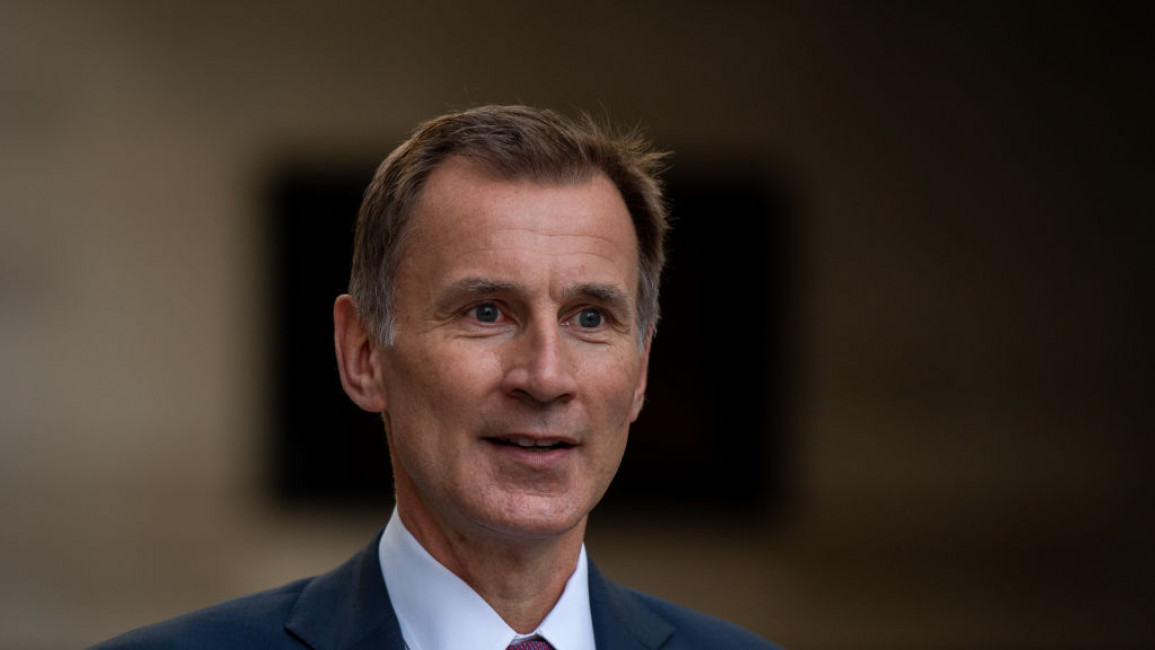UK Chancellor Hunt brings forward fiscal measures after mini-budget turmoil
The UK's new chancellor Jeremy Hunt will unveil tax and spending measures later on Monday, bringing forward part of his fiscal plan in a bid to calm markets after last month's botched debt-fuelled budget.
Hunt – who was parachuted into the job on Friday to replace ousted Kwasi Kwarteng – will "make a statement bringing forward measures from the medium-term fiscal plan" that is due on 31 October, the Treasury said in a statement.
The measures "will support fiscal sustainability", the statement said, after last month's notorious mini-budget had sent bond yields spiking and the pound collapsing on concerns of rocketing debt.
Monday's news sent the pound climbing against the dollar while the UK's 30-year bond yield rose to 4.78 percent.
Prime Minister Liz Truss fired Kwarteng after the debt-fuelled budget sparked markets chaos, fuelling speculation over her political future just over one month after the Conservative premier took office.
Following his shock appointment, Hunt hit the ground running on Saturday with a warning of looming tax hikes as he dramatically reversed course on right-wing Truss's radical programme of economic reform.
The furore over the budget, which contained vast tax cuts and a costly freeze on domestic energy prices, has reportedly sparked a plot to oust Truss from Downing Street.
Chancellor of the Exchequer Hunt met with the governor of the Bank of England and the head of the Debt Management Office to discuss his plans late on Sunday, according to Monday's statement.
In the wake of the budget, the Bank of England was forced to jump into markets as a result under an emergency bond-buying policy.
Tax cuts were the centrepiece of the ill-starred budget.
But they were financed through billions in extra borrowing, causing panic on financial markets at the prospect of higher inflation, which has already left British households in the grip of a cost-of-living crisis.

![Thousands gather in front of the Cannon House Office Building and the US Capitol to demand the US pressure Israel on a ceasefire in its conflict with Gaza. [Brooke Anderson/The New Arab]](/sites/default/files/styles/image_330x185/public/2023-10/393387495_710301464290105_8375393679399060035_n.jpg?h=ff8c3fa3&itok=WdtyAWP_)

